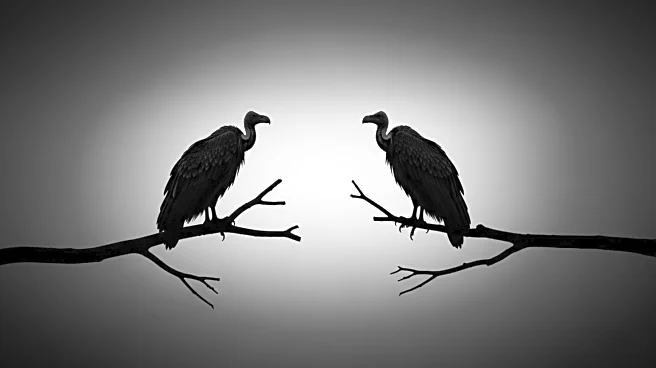What's Happening?
Freddie Gibbs recently shared insights into his collaboration with Ye, formerly known as Kanye West, on the album 'Vultures'. During an appearance on The Butcher Block Podcast, Gibbs recounted an incident involving a Complex list that ranked his verse 'Back to Me' at No. 12 among the best verses of 2024. Gibbs expected Ye to be pleased with the recognition, but instead, he claims Ye was upset that none of his own verses were featured on the list. Gibbs expressed disappointment, noting that he had hoped Ye would be proud of his contribution to the album. The rapper also mentioned that he had been ghostwriting for Ye, which he believes contributed to the tension between them.
Why It's Important?
This revelation highlights the complexities and challenges often faced in collaborative creative projects, especially in the music industry. The tension between Gibbs and Ye underscores the competitive nature of artistic recognition and the impact it can have on professional relationships. For the music industry, such dynamics can influence future collaborations and the way artists approach joint projects. It also sheds light on the role of ghostwriting in the industry, which can lead to disputes over credit and recognition. Fans and industry stakeholders may view this as a reflection of the pressures artists face to maintain their reputations and artistic integrity.
What's Next?
The fallout from this incident could affect future collaborations between Gibbs and Ye, as well as influence how Gibbs approaches partnerships with other artists. It remains to be seen whether Ye will publicly address Gibbs' claims or if the two will reconcile their differences. The music community may watch closely for any developments, as such disputes can impact album sales, fan perceptions, and the artists' professional trajectories. Additionally, this situation might prompt discussions about the ethics of ghostwriting and credit in the music industry.
Beyond the Headlines
The incident between Gibbs and Ye may also spark broader conversations about the nature of artistic collaboration and the importance of mutual respect and recognition in creative partnerships. It highlights the potential for ego clashes and the need for clear communication and understanding between collaborators. This could lead to a reevaluation of how artists credit contributions and manage creative differences, potentially influencing industry standards and practices.








